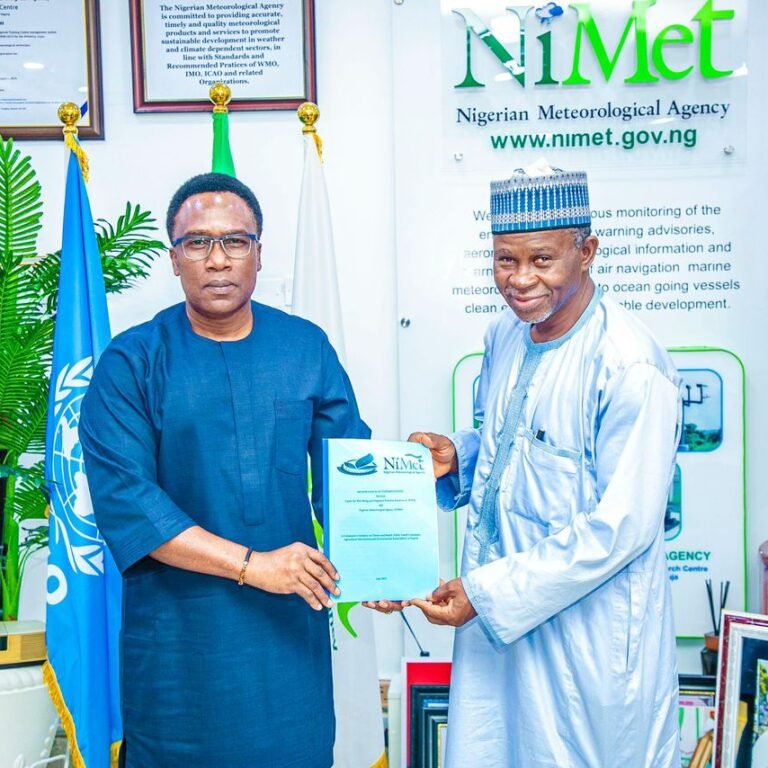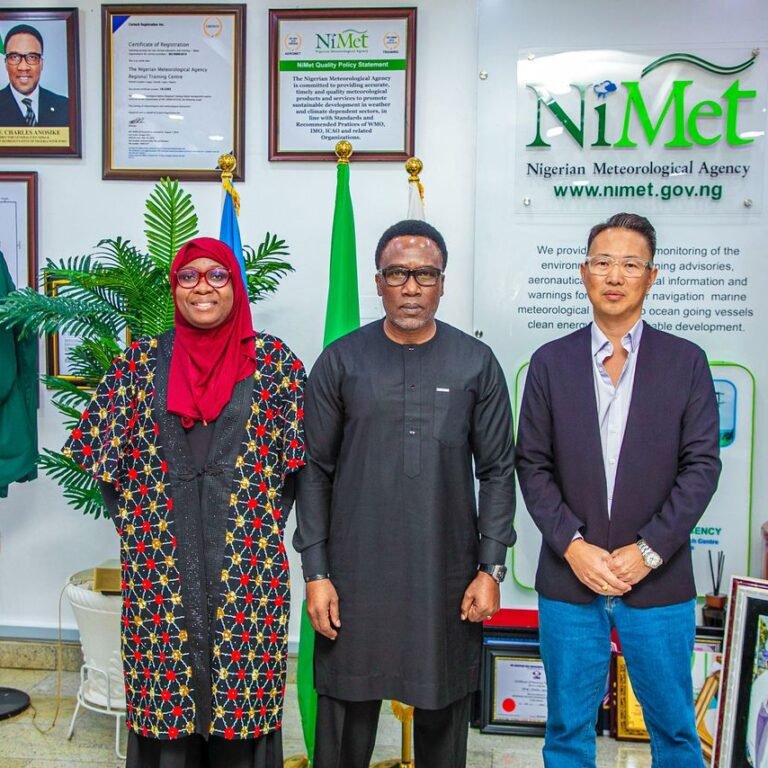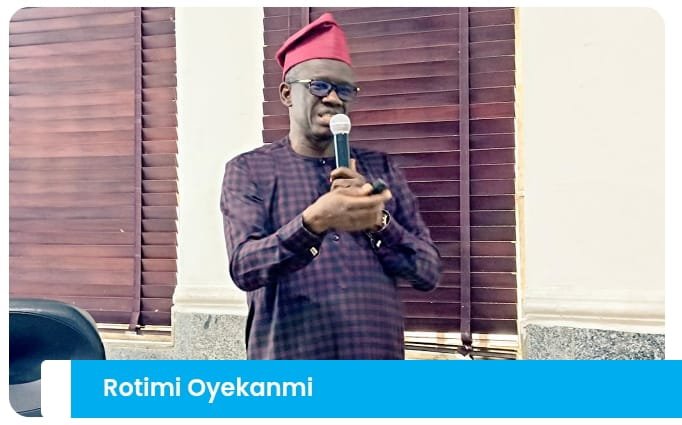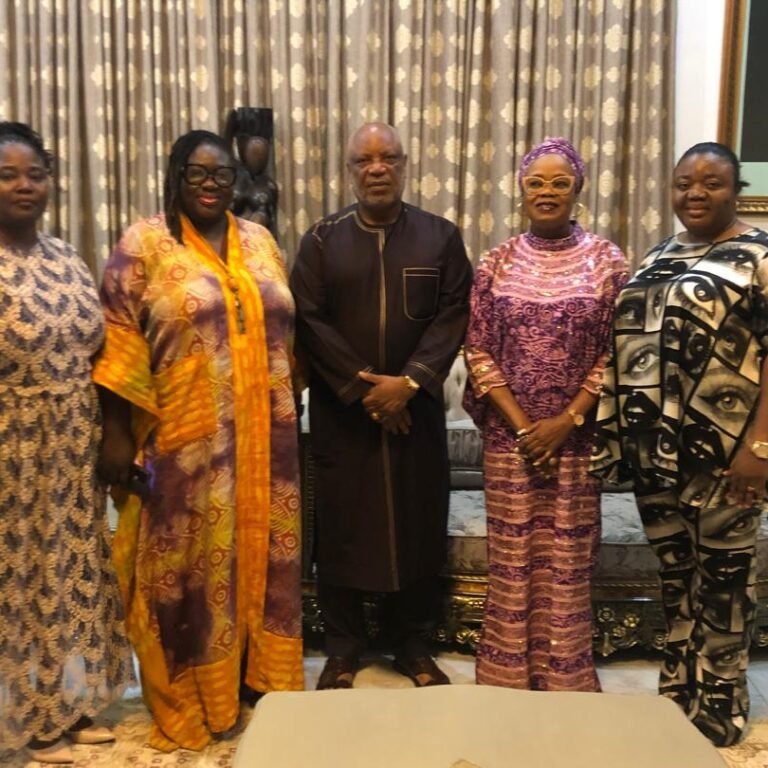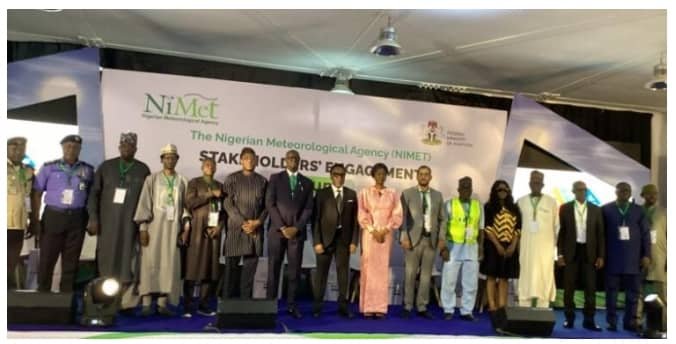
By Sarah Mohmoh
The Director-General of the Nigerian Meteorological Agency (NiMet), Professor Charles Anosike, has reaffirmed the agency’s commitment to delivering timely and accurate weather information, stressing that early warnings must translate into concrete action to safeguard lives and livelihoods.
He gave the assurance at the opening of a two-day Stakeholders’ Forum on Climate Risks held at the Naval Dockyard, Victoria Island, Lagos. The forum, themed “Early Warnings: Raising Awareness on Climate Risks and Promoting Early Action,” brought together government officials, industry players, and development partners.
According to Anosike, the gathering was designed as a platform for collaboration, feedback, and co-creation of solutions that will strengthen Nigeria’s resilience to climate variability and change.
“Early warnings must not end with forecasts alone they must inspire understanding and drive decisive action. This is why your presence, active participation, and engagement at this forum are critical,” he said.
Sustaining Weather Services
The NiMet boss noted that delivering quality weather and climate services is resource-intensive, urging stakeholders to support the agency’s cost recovery initiatives.
“Despite limited resources, NiMet has never compromised on service quality. We continue to expand our services in line with our mandate. Sustaining these efforts requires continuous investment beyond government subvention,” he explained.
He added that the agency is transforming scientific outputs into impactful services and sustainable revenue streams, calling for more active partnerships across sectors.
Enhancing Safety Across Sectors
Highlighting NiMet’s pivotal role in socioeconomic development, Anosike outlined how the agency provides critical data for aviation safety, agriculture, maritime operations, and disaster risk reduction.
He disclosed that NiMet has gone digital with tools like the Electronic Flight Folder for virtual flight briefings and has achieved ISO certification for five airports, including Lagos and Abuja, with plans to expand further.
NiMet, he said, is also collaborating with the National Emergency Management Agency (NEMA) and the Nigerian Maritime Administration and Safety Agency (NIMASA) to mitigate weather-related disasters and support the blue economy.
On infrastructure and technology, he announced the deployment of advanced tools, including multi-model forecasting systems, real-time data transmission through the in-house technology Meteowiz, and new meteorological equipment funded by partnerships and government support.
Stakeholders’ Call to Action
Representing Vice President Kashim Shettima, Special Adviser to the President on Humanitarian Affairs and Development Partners, Inna B. Audu, underscored the critical role of early warning systems in national development.
“Early warning systems are not merely technical tools; they are life-saving mechanisms. For them to be effective, the messages must be accessible, understandable, and usable by decision-makers at all levels,” she said.
Similarly, the Managing Director of the Nigerian Airspace Management Agency (NAMA), Farouk Umar, represented by Tayo John, warned that the aviation sector remains highly vulnerable to the impacts of global warming from turbulence and flight delays to infrastructure damage.
He stressed the need for “workable solutions” and greater professional responsibility to avert disasters both “on the ground and in the air.”
The forum, participants agreed, marks a milestone in NiMet’s drive to deepen climate risk awareness, foster collaboration, and promote early action in the face of intensifying weather hazards.


